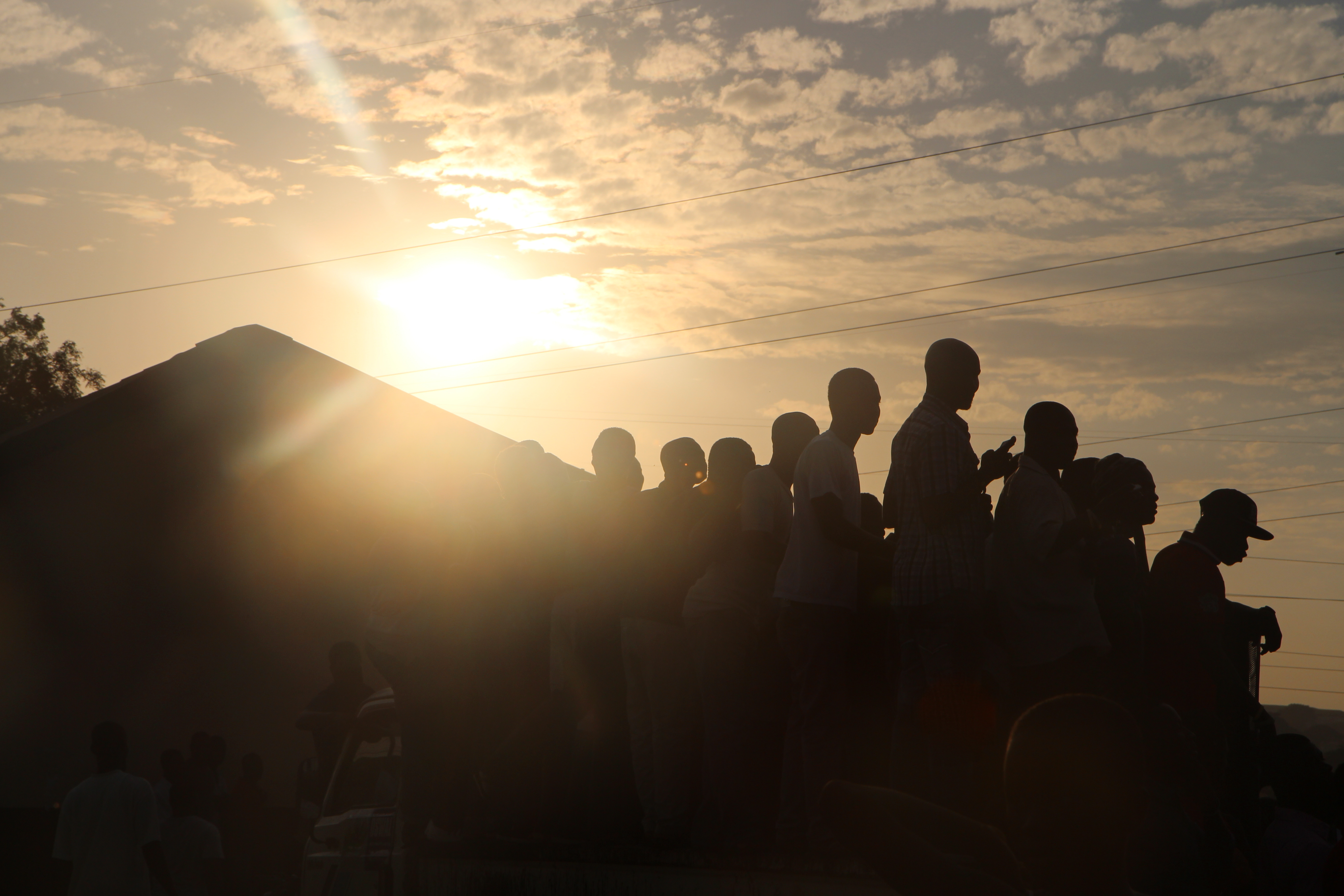Ghana is everything and nothing like the way I pictured it, though I never could quite formulate an image of the country in my mind. I tried to abandon the typical African clichés from my pre-departure conceptions of Ghana, so I left Oregon with few expectations. But as irony would have it, my first trip to Africa would of course be incomplete without the first people I saw upon stepping outside the airport to be African women dressed in colorful tribal print dresses with young children tied to their backs and huge baskets of fruit balanced on their heads.
Anytime I’ve entered into a new and unfamiliar place, whether it was starting college or traveling abroad, there are always the vulnerable beginning days where I find myself desperately searching for the comfort of anything familiar. I’ve had little luck with this coping mechanism here in Ghana, but there have been small moments where my initial reaction to a situation is met by a quick rush of familiarity when I think I recognize something whose African stereotype has been stamped into my head… “Ah-ha, Africa!” But from my initial and limited interactions with the city so far, Accra is really nothing like I could have imagined it.
I wrote a blog entry once after a trip to Morocco while studying abroad in Spain that expressed a grief-stricken reaction to my first encounters with poverty in a developing nation. I remember my host mother asking me what was wrong when I came home and explaining to her (in strained Spanish) that I didn’t feel right about parading around their city, walking pass evidence of huge economic struggle, and then so easily hopping on a boat back to such a luxurious lifestyle. My host mother scolded me for thinking so limitedly. She told me that as long as people’s basic needs and rights are being met, happiness was not influenced by wealth. We talked about the contentment of living a materialistically simple life, and of the skewed perceptions Westerns have of lesser-developed countries as being deprived people. (I should note that the Spanish vocabulary used in this conversation was not quite so complex… I inferred most of what she said by hand gestures and facial expressions, so maybe she was not in fact giving me the life lesson I thought she was.) So I think it was the influence of this experience that made my reaction to Accra different than what it may have been a year ago.
The economic disparities between different parts of the city seem to be great, as we’re told the country lacks a significant middle class. When we flew in we saw collections of huge mansions, each with a swimming pool glittering in the sunlight. We haven’t had any interaction with this part of Accra, and so we’ve been mostly overwhelmed by the city’s low-income population. The neighborhood we live in is called East Legon, and is one of the wealthier areas of the city, but in other parts of Accra, evidence of economic struggle is clearly prevalent. The deeply dug gutters lining the roads are often filled with plastic garbage and sewage, street vendors sit next to distressed wooden stands under tattered umbrellas to escape the day’s heat, and behind these stands, down narrow alley ways, you can make out small homes with makeshift walls of plywood or sheets of metal. We were told the average income for a Ghanaian is about four Cedis, or two dollars, a day – just over $700 a year.
On limited and naïve observations alone, economically, it was similar to the cities I visited in Morocco. But what I failed to allow myself to observe during my previous travels was something I noticed in full here. The people here are simply happy. Everyone seems to thrive on the country’s culture and unique sense of unity. Ghanaians warmly refer to each other as mother, father, sister, brother, daughter and son. Except for us of course. They call us “obrunis,” which means, “white foreigners.” (We’re told this isn’t an insult.) It is the collectiveness of the people here that is the most foreign to me. Someone told us that although the police force is less pronounced here, the crime rates are incredibly low because Ghanaians hold criminals accountable in their own, often brutal, ways. They watch out for each other, whether friend or stranger, as family. We hope that once we get out of the van that has toured us around the city for the last few days and begin to integrate ourselves into our workplaces, the city, and the culture, we will be accepted as the same.




Awesome! Keep up the good work guys and have lots of fun.
Much love from Oregon and the Emerald,
Sam